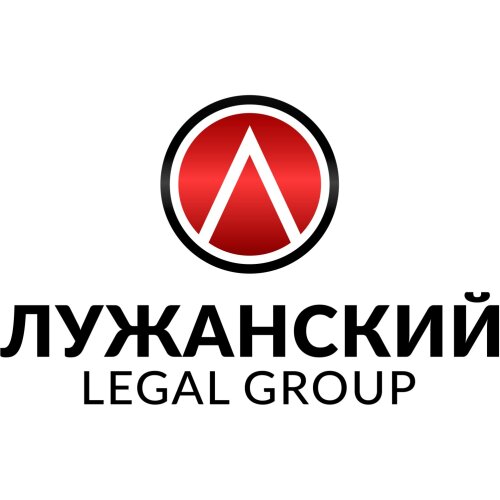Best Conveyancing Lawyers in Kyrgyzstan
Share your needs with us, get contacted by law firms.
Free. Takes 2 min.
Free Guide to Hiring a Real Estate Lawyer
Or refine your search by selecting a city:
List of the best lawyers in Kyrgyzstan
About Conveyancing Law in Kyrgyzstan
Conveyancing in Kyrgyzstan refers to the legal process of transferring ownership of real estate from one party to another. This field of law includes the preparation and review of all documents needed to legally buy, sell, or transfer property such as land, houses, or commercial spaces. The laws and procedures related to conveyancing are regulated by the Civil Code of the Kyrgyz Republic and other property law ordinances. The process also involves land registry entries, verification of title deeds, and compliance with tax requirements.
Why You May Need a Lawyer
Conveyancing can be a complex process, especially for individuals who are not familiar with Kyrgyz legal procedures. Here are some common situations where you may need legal help:
- Buying or selling a home, apartment, or commercial property
- Transferring property ownership due to inheritance or gifting
- Dealing with disputes over property boundaries or titles
- Identifying legal or financial encumbrances on a property
- Ensuring compliance with zoning laws and local building regulations
- Representation in negotiations or transactions involving foreign buyers or sellers
A qualified lawyer can help to ensure your transaction is legally sound and protect your rights throughout the process.
Local Laws Overview
Kyrgyzstan has specific laws and regulations that govern property transfers. Key aspects include:
- All real estate transfers must be formalized through a written agreement, which is then notarized and registered with the State Register of Rights to Immovable Property and Transactions Therewith (Gosregistr).
- Both parties must provide clear proof of ownership and legal capacity to enter into the contract.
- Due diligence involves confirming the absence of disputes, unpaid debts, or third-party claims affecting the property.
- Foreign citizens and legal entities may be subject to additional requirements or restrictions, particularly involving agricultural land.
- Tax obligations, such as property transfer taxes or notary fees, must be fulfilled before the transaction is complete.
- Inheritance and gifting of real estate are subject to detailed property and family laws.
Failure to comply with local property laws can result in invalid transactions or legal disputes, making legal assistance highly recommended.
Frequently Asked Questions
What documents are needed for property transfer in Kyrgyzstan?
Typically, you need the title deed, proof of identity of both parties, a notarized sale-purchase agreement, and a certificate confirming no outstanding debts or liens on the property.
Is it mandatory to use a lawyer for conveyancing?
While not always legally required, using a lawyer is highly recommended to reduce risks and ensure all legal obligations are met.
How long does conveyancing typically take?
The process can take anywhere from a few days to several weeks, depending on the complexity of the transaction and the speed of document verification and registration.
How are property rights registered?
Property rights are registered with the State Register, locally known as Gosregistr, after submitting all necessary documents and paying any applicable fees.
Can foreigners buy property in Kyrgyzstan?
Foreign citizens and companies are allowed to acquire most real estate, except for agricultural land. Restrictions may apply, and additional documentation may be necessary.
What taxes or fees apply to property transfers?
There can be property transfer taxes, state duties, and notary fees. The exact amounts depend on the value and type of property.
How can I check if a property has legal disputes or encumbrances?
A lawyer can assist with conducting due diligence, including requesting records from Gosregistr and reviewing court documents for any legal disputes.
Is it possible to gift property in Kyrgyzstan?
Yes, property can be transferred as a gift, but the process also involves legal documentation, notarization, and state registration.
What happens if there is a dispute after the transfer?
Disputes can be resolved through negotiation, mediation, or, if necessary, through the courts. Having a properly documented conveyancing process greatly reduces such risks.
Are mortgages and loans common in property transactions?
Yes, mortgages are available through local banks, and registering the mortgage with Gosregistr is necessary to formalize the lender's rights.
Additional Resources
If you need more information or assistance related to conveyancing in Kyrgyzstan, consider contacting the following resources:
- State Register of Rights to Immovable Property (Gosregistr): The main agency responsible for property registration and related inquiries.
- Kyrgyz Notarial Chamber: For information on notaries and legal requirement guidelines.
- Kyrgyz Association of Lawyers: For legal referrals and advice on conveyancing matters.
- Local real estate agencies: They can assist in navigating local property markets and procedures.
Next Steps
If you plan to buy, sell, or otherwise transfer property in Kyrgyzstan, start by gathering all relevant documents related to the property and your own identification. Research qualified lawyers or law firms experienced in conveyancing. Schedule a consultation where you can discuss your situation and ask for a detailed explanation of the process, fees, and timelines. Your lawyer can then help guide you through the necessary steps, from negotiating the contract to completing all required legal formalities and registrations. Acting proactively will minimize risks and ensure your conveyancing process proceeds smoothly according to Kyrgyz law.
Lawzana helps you find the best lawyers and law firms in Kyrgyzstan through a curated and pre-screened list of qualified legal professionals. Our platform offers rankings and detailed profiles of attorneys and law firms, allowing you to compare based on practice areas, including Conveyancing, experience, and client feedback.
Each profile includes a description of the firm's areas of practice, client reviews, team members and partners, year of establishment, spoken languages, office locations, contact information, social media presence, and any published articles or resources. Most firms on our platform speak English and are experienced in both local and international legal matters.
Get a quote from top-rated law firms in Kyrgyzstan — quickly, securely, and without unnecessary hassle.
Disclaimer:
The information provided on this page is for general informational purposes only and does not constitute legal advice. While we strive to ensure the accuracy and relevance of the content, legal information may change over time, and interpretations of the law can vary. You should always consult with a qualified legal professional for advice specific to your situation.
We disclaim all liability for actions taken or not taken based on the content of this page. If you believe any information is incorrect or outdated, please contact us, and we will review and update it where appropriate.
Browse conveyancing law firms by city in Kyrgyzstan
Refine your search by selecting a city.









